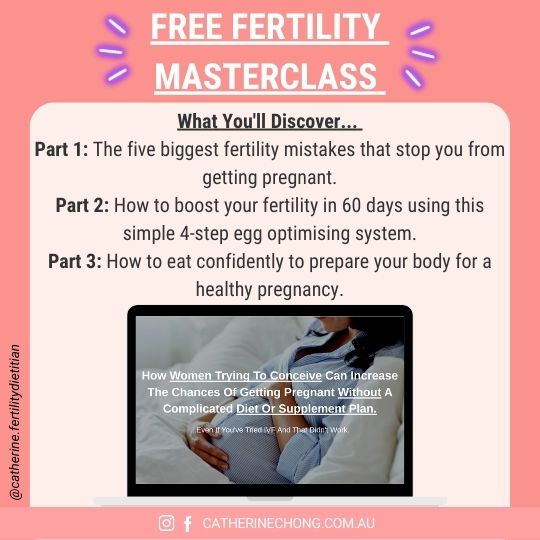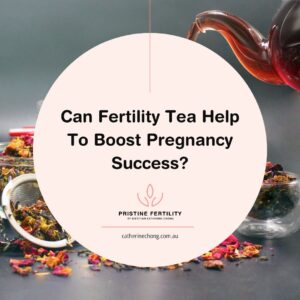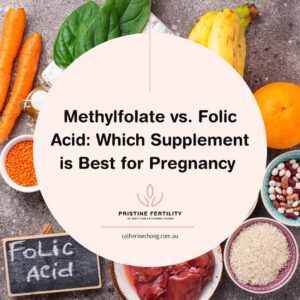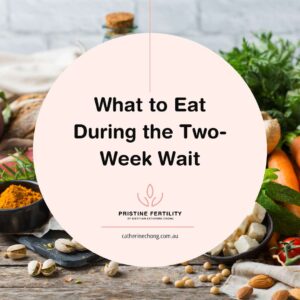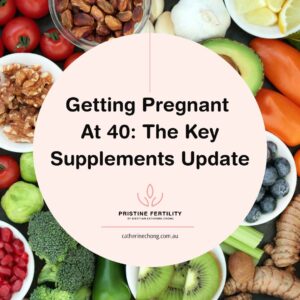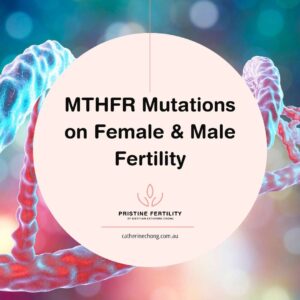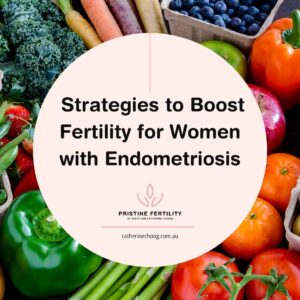Nurturing Fertility: A Comprehensive Egg Freezing Diet Guide
Egg freezing, a concept that’s becoming increasingly familiar, helps women safeguard their reproductive choices. This article delves into the intricacies of egg freezing, the factors spurring its popularity, and how a thoughtfully curated diet can impact the quality of frozen eggs.
We will explore an expert-led approach to optimising egg health through nutrition, lifestyle adjustments, and forward-looking insights.
In this comprehensive guide, discover how to tailor your journey to better fertility with an egg-freezing diet that aligns with your unique needs.
Understanding Egg Freezing
Egg freezing, once primarily associated with medical circumstances, has evolved into a proactive option for women desiring reproductive flexibility. By preserving unfertilized eggs, women can navigate life’s complexities without compromising future fertility aspirations. Modern advancements in technology ensure that the quality of frozen eggs remains intact, promising the potential for successful conception when the time is right for you.
Egg Freezing Is On The Rise
The decision to embrace egg freezing is often driven by the desire to transcend the constraints of your biological clock. Elective egg freezing has gained traction as a valuable fertility solution, enabling young women to alleviate timing pressures while proactively preserving their reproductive potential.
A Victorian Assisted Reproductive Technology Authority report underscores this shift, revealing a 30 per cent increase (more than 4,000 women) had eggs in storage in Victoria at the end of 2019 – 20.
Elevating Egg Quality
The crux of egg-freezing success lies in the quality of the eggs frozen. As in traditional IVF, optimising egg quality significantly enhances the likelihood of a positive outcome. Understanding the interplay between nutrition, lifestyle, and egg health becomes pivotal.
Currently, there is no definitive fertility test for assessing egg quality. The true measure comes when eggs fuse with sperm, yielding a thriving embryo – a sign of good quality and chromosomal normalcy.
Notably, high-quality eggs often lead to high-quality embryos. This has led nutrition researchers to explore how specific dietary patterns can amplify women’s fertility and promote positive pregnancy outcomes.
A Holistic Nutrition Approach
1. Embrace a Mediterranean-Style Diet
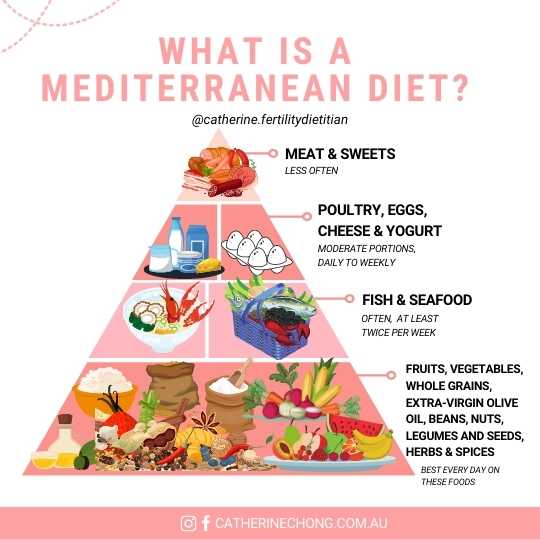
The Mediterranean diet is a well-researched, widely accepted, nutritious style of eating that champions vegetables, fruits, whole grains, legumes, nuts, olive oil, and lean proteins while curbing red meat and processed sugars.
Laden with B group and antioxidant vitamins, this diet harmonises fertility-friendly nutrients. Its benefits span reduced saturated fats heightened omega-3 content, and antioxidant-rich compounds—ideal for fostering fertility.
A study involving 1,061 subfertile couples undergoing IVF/ISCI treatment unveiled a 40% higher likelihood of pregnancy with adherence to the Mediterranean dietary approach.
Similarly, a broader study encompassing over 17,000 women planning conception or already pregnant revealed that following a “pro-fertility” diet, akin to the Mediterranean regimen, correlated with reduced risks of ovulatory disorder.
2. Limit Alcohol Consumption
Minimising alcohol intake, even before pregnancy, can influence fertility outcomes. Research points to alcohol’s potential harm to ovulation, menstrual cycles, and ovarian reserves.
Another study revealed that those who engage in frequent binge drinking, consuming two or more times a week, experienced a 26% decrease in anti-Müllerian hormone (AMH) levels.
Additionally, research from Denmark indicated that women aged 30 or older, who consume 1-6 drinks per week, may face an elevated risk of infertility compared to those who consume fewer than one drink per week.
3. Reducing Environmental Chemicals Exposures
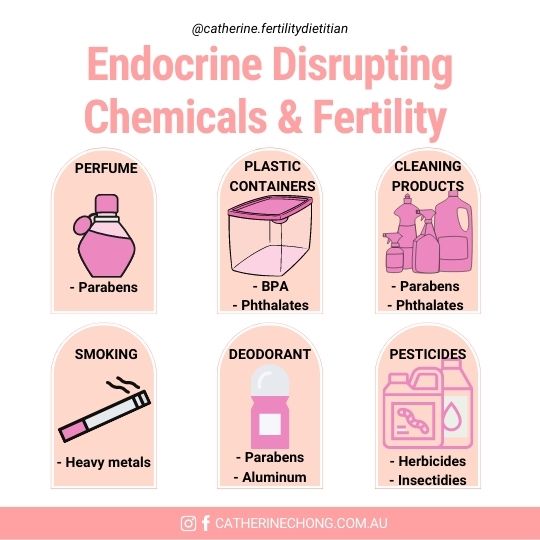
Elevated awareness of environmental toxins, particularly Bisphenol-A (BPA), is essential. This prevalent chemical in plastics and resins can disrupt reproductive hormones and treatment outcomes.
BPA has been linked to shifts in women’s hormone levels, potentially affecting assisted reproductive procedures. Studies indicate that BPA exposure might impact egg quantity and quality among females.
While avoiding BPA exposure entirely is challenging, practical strategies such as choosing BPA-free containers, avoiding heating food in plastic containers or packaging, and favouring fresh foods over canned goods can mitigate exposure. Opting out of shopping receipts and choosing electronic copies can also help.
4. Nurture Yourself with Egg Quality Supplements
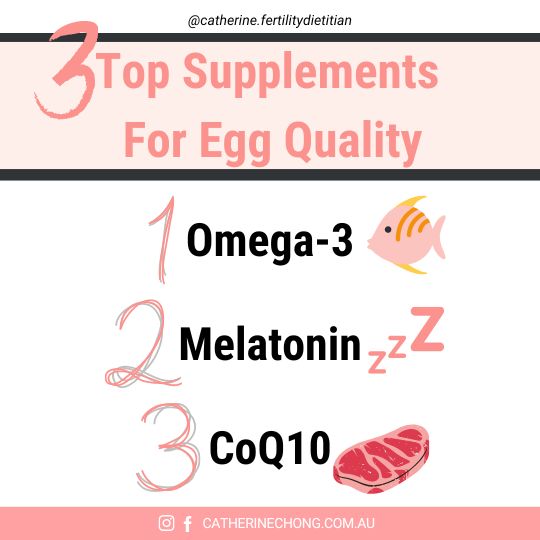
Coenzyme Q10 (CoQ10), an antioxidant that counters oxidative damage that affects eggs, has shown evidence of boosting the number of oocytes retrieved during egg collection.
Omega-3 fatty acids, renowned for their antioxidant prowess, bolster oocyte quality. Consider including omega-3-rich foods like salmon and mackerel at least twice weekly, or take an omega-3 supplement if your dietary intake is low.
Finally, a study revealed that supplementing with folic acid lowered homocysteine levels in both follicular fluid and serum, improving oocyte quality and maturity.
5. Prioritise Restful Sleep
Elevating egg quality goes beyond diet. Prioritise sleep to harness the benefits of melatonin, a protective hormone. Known for regulating circadian rhythms and combating oxidative stress, melatonin enhances the quantity and maturity of collected oocytes. Its role in fertility treatments underscores its significance.
Bottom Line
- Egg freezing empowers reproductive choices with the help of a personalised diet, expert insights, and holistic strategies.
- A comprehensive approach, including a Mediterranean-style diet, toxin reduction, supplements, and sleep prioritisation, optimises egg quality for improved fertility outcomes.
Need More Help?
Don’t navigate this journey alone. Schedule a personalised nutrition consultation today. Let’s clear the confusion together and boost your fertility naturally.
You May Also Be Interested In
Disclaimer: Content on this website is provided for information purposes only and should not be replaced with medical advice. We recommend you discuss with your healthcare providers (doctor, dietitian, pharmacist, etc.) any medical questions for diagnosis and treatment, dietary plan, or use of any medications and nutritional supplements before you make any changes. DietitianChong Pty Ltd shall not bear any liability for reliance by any user on the materials contained on this website.

